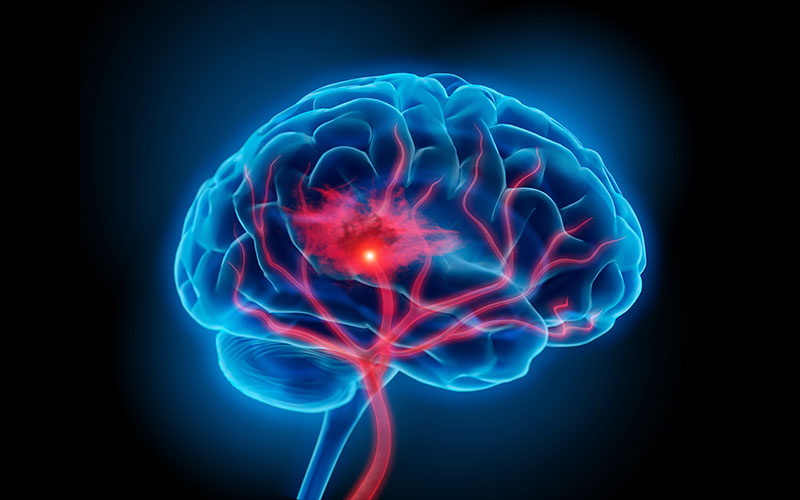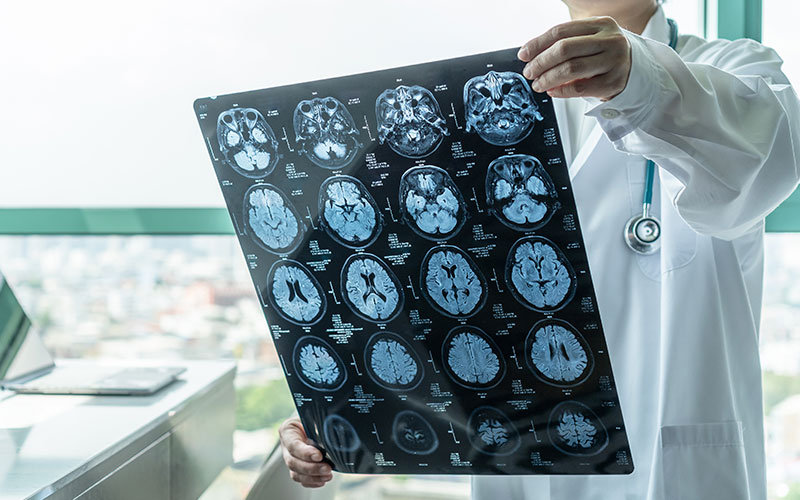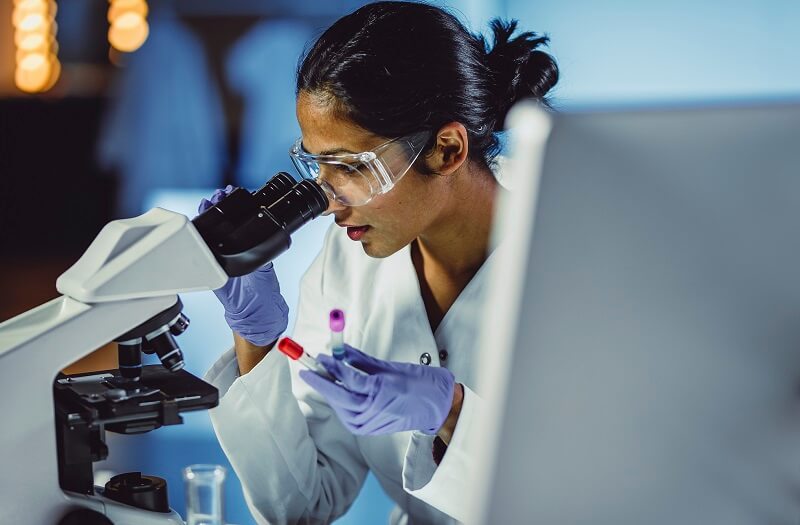- Home
- Growth Hormone
- Growth Hormone
- Growth Hormone Deficiency
- Growth Hormone Therapy
- Growth Hormone Injections
get startedThe Most Effective Hormone Replacement TherapiesHGH for Stroke Recovery: Is There Hope?
There is mounting evidence that growth hormone therapy can provide some benefit for victims of stroke.
In normally functioning individuals, human growth hormone (HGH) is essential for good cognition and brain health. In stroke patients, studies have found that growth hormone therapy may provide some benefits for recovery. HGH has neuroprotective benefits for the brain and promotes plasticity, which can all help with the repairing of nerve damage, the formation of new blood vessels, and the reversal of apoptosis – early cellular death.
Mental impairment affects up to 80 percent of stroke survivors. In the past few years, there have been several studies indicating the potential for supplemental HGH to improve the memory and cognitive function of in post-stroke victims.
What Is a Stroke?
A stroke occurs when the blood supply to part of your brain is interrupted or reduced, preventing brain tissue from getting oxygen and nutrients.
According to the American Heart Association, a stroke occurs when a blood vessel that feeds oxygen and nutrients to the brain is either blocked by a clot or bursts. When that happens, the parts of the brain fed by that vessel are starved of oxygen)and brain cells die. Depending on the area of the brain that is damaged, stroke can lead to a variety of cognitive and physical impairments.
How Can Growth Hormone Help Brain Recovery After a Stroke?
According to current statistics, thanks to improved treatments, more people are surviving an initial stroke. That is the good news. The bad news is that it means that more people are living with the brain damage and cognitive impairment that comes after having a stroke. Yet, emerging post-stroke therapies such as the use of HGH are offing hope of brain recovery after a stroke.
There has been significant research to indicate that HGH can certainly help with brain recovery after stroke. These studies indicate that growth hormone treatment, when used together with rehabilitation programs, can promote a positive outcome for brain injury and stroke patients. A study that has been going on since 2018 in Australia is showing remarkable results.
Dr. Lin Kooi Ong, the lead researcher on the study, said, "we decided to undertake the "Bedside to Bench" approach to investigate whether we can use growth hormone as neurorestorative therapy after stroke. Briefly, we treated stroked models with growth hormone subcutaneously, a similar administration route as in the human studies.
We found that growth hormone treatment significantly improved cognitive performance in stroked models.” Adding, “Our results are striking, supporting the effectiveness of growth hormone therapy in facilitating the formation of the brain’s vascular and neuronal networks, leading cognitive recovery after stroke.”
Can Growth Hormone Help Restore Cognitive Function After a Stroke?
Research into the use of HGH therapy to restore cognitive function after stroke is showing positive results worldwide. A 2018 study from Sweden, published in the Journal Stroke and reported on in “Science Daily," found that animal stroke victim models showed less fatigue and better recovery of cognitive abilities such as learning and memory after being treated with HGH.
"We hope that this work can pave the way for clinical studies involving the use of human growth hormone as a treatment in the rehabilitation phase after a stroke," says Jorgen Isgaard, professor of endocrinology at Sahlgrenska Academy, University of Gothenburg, Sweden. The study involved stroke-induced mice.
Isgaard’s results show a definitive link between growth hormone and improved cognition after a stroke, as well as the possible mechanisms that may be responsible. "The most important new finding is that growth hormone improves cognition after a stroke compared with controls. If this finding holds true for humans, it can lead to a breakthrough in terms of treatment that facilitates rehabilitation and quality of life after a stroke," says Jorgen Isgaard.
These early mice models initially indicated the potential of HGH to improve the memory and cognitive function of post-stroke victims and were some of the first to raise the possibility of a similar treatment for humans.
Since then, there have been several human studies that are showing that HGH can improve cognitive function in human stroke victims.
HGH therapy is offering some hope for recovery for stroke victims.
Are There Other Hormones Besides HGH That Can Help Stroke Victims?
Other forms of hormone replacement therapy (HRT) are also being investigated for their potential benefit in stroke recovery. Most notably testosterone replacement and progesterone therapy.
In clinical studies of progesterone use following traumatic brain injury (TBI), the has been some evidence that it provided a positive outcome for improvement. While there is some belief that progesterone may have significant benefits for stroke, more research is necessary.
The results with testosterone have been more promising. On a study of men with type 2 diabetes who experienced a non-fatal ischemic stroke, long-term (up to 5 years) testosterone use provided the following results:
- Reduced risk of developing a second stroke
- Decreased death risk associated with a second stroke
- Increased muscle strength
- Speeds up recovery
- Reduced body weight
- Lowered blood pressure
- Improved quality of life and decreased symptoms of depression
- Reduced LDL cholesterol and triglycerides
What Does the Medical Research Say About HGH and Stroke?
In addition to the studies mentioned above, there have been other studies indicating that growth hormone therapy generally has positive effects on cognition after brain damage. The investigation into whether HGH could possibly help stroke victims recover comes on the heels of previous studies, which discovered that growth hormone deficiency (GHD) often occurs after a stroke. This is presumably due to the impact of the stroke on pituitary function.
A pilot human trial in 2012 on human stroke victims found that HGH therapy resulted in less fatigue and improved cognitive function. Twenty-two patients- all stroke victims with measurable motor difficulties – were enrolled, and 15 completed the study and were included in the analysis.
This study, published in the Annals of Rehabilitation Medicine, concluded, “Our study revealed the therapeutic potential [HGH]… by showing improved motor functions during the active rehabilitative period. The administration of HGH in long term resulted in the improvement in [motor coordination] and subjectively less tiredness during the injection period.”
One of the most recent studies, this one published in 2020 in the International Journal of Molecular Sciences, found that in addition to the already well-documented positive effects of HGH on cognitive function after stroke, growth hormone therapy could also help return motor function to stroke victims. This particular study concluded, “This study demonstrated that HGH treatment improves motor function after stroke by 50%–60%, as assessed using the cylinder and grid walk tests.
Furthermore, the observed functional improvements occurred in parallel with a reduction in brain tissue loss, as well as increased cell proliferation, neurogenesis, increased synaptic plasticity, and angiogenesis within the peri-infarct area. These findings provide new evidence about the potential therapeutic effects of GH in stroke recovery.”
There is promising evidence that HGH helps stroke victims to regain both brain and motor functions.
Now that you know a bit more about how HGH my aid in stroke recovery, why not contact us today and find out more about the many other positive benefits of growth hormone replacement therapy.
- Growth Hormone Therapy



























